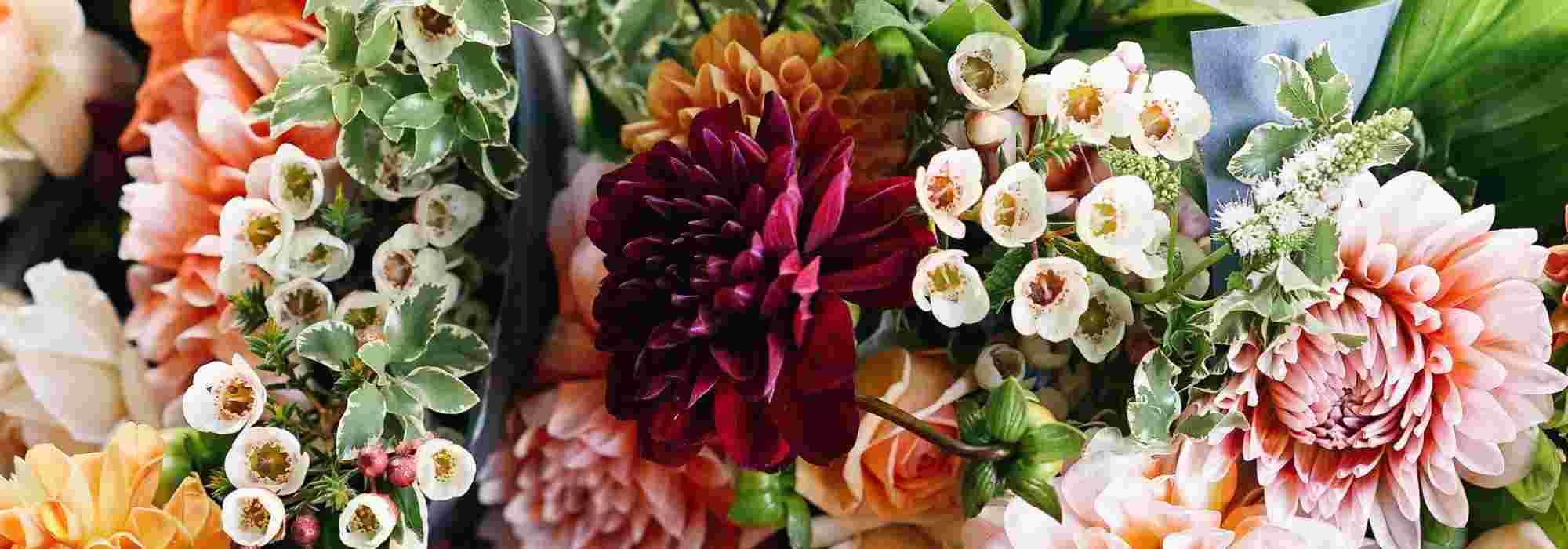
Create a garden of cut flowers to make your own bouquets
Best flowers for your bouquets
Contents
What a pleasure to pick the most beautiful flowers from your garden to make bouquets! From the humblest bouquet to the most sophisticated arrangements, from compositions with bohemian charm to the most contemporary bridal bouquets, by growing your own cut flowers or florist’s garden, discover all the possibilities fresh flowers offer. So why not dedicate a corner of your garden to cut flowers? Which flowers last longest in a vase, how to create your own cutting garden? Here are our tips and a list of the best varieties of cut flowers, plus foliage to create pretty bouquets! And discover our best cut flower seeds!
→ Also read Best long-lasting flowers and foliage for your bouquets
How to create a cut-flower garden?
In the past, castle gardens all had a cutting-flower plot, often placed in a corner of the vegetable garden. Today, this space providing you with a regular supply of fresh flowers has its place in every garden. Whether a simple special “cut flowers” area or a true florist’s garden also called “jardin bouquetier”, choice of location depends above all on space available.
- Only have a small garden? Sow and plant cut flowers along house walls, at edge of borders or directly into beds.
- Have a vegetable garden? Young plants of cut flowers fit naturally in neat ranks between vegetables, on the edge of the vegetable garden or here and there at the foot of vegetables to attract pollinating insects.
- Have a large garden? Treat yourself to a bed entirely dedicated to your cut flowers, made of a cheerful mix of annuals or perennials, grasses and bulb plants. Arrange this type of bed to make flower picking easy by creating lawned paths wide enough to access your plants easily and to avoid crushing neighbouring flowers when cutting time comes. Also think about varying heights by placing the lowest varieties at edge of the bed and the tallest in the middle, if you do not want smaller plants to be overwhelmed by larger ones!
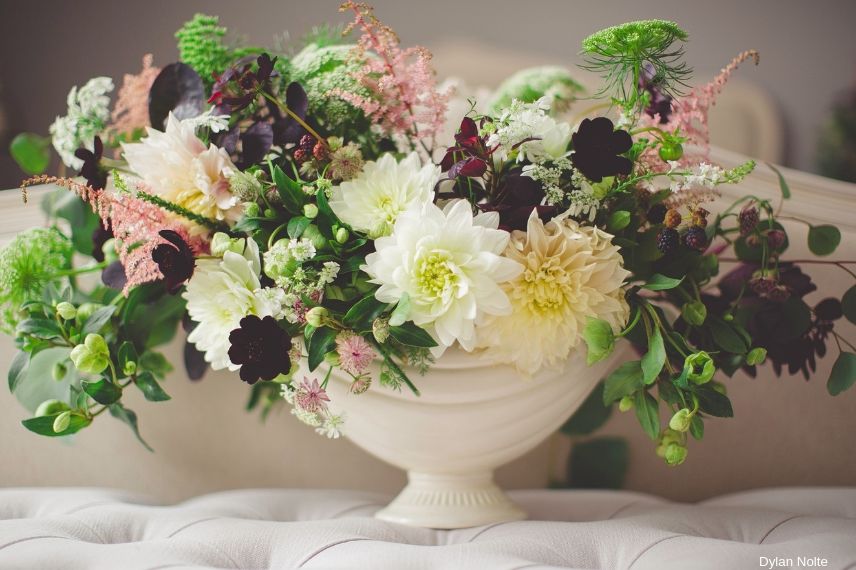
Flowers do not all bloom at the same time: make sure to have fresh flowers available for as long as possible by mixing cut flowers according to their flowering period; spring, summer or late season.
Whatever space is set aside, most cut flowers will prefer sunny, sheltered positions protected from strong winds to achieve generous flowering and to prevent flower stems from breaking.
Best cut flowers
Annual cut-flower seeds or perennials, choice is wide for flowers for bouquet-making and should not be left to chance. Choose remarkable plants for their size, their texture, their colours and that last a long time! Opt for the most floriferous species with tall, sturdy stems that ensure good vase life, because some, however pretty, wilt as soon as they are cut.
Best perennial flowers for bouquets
Perennials work well in a cut-flower garden, returning faithfully year after year: choose floriferous varieties that need little maintenance.
Gypsophila
Gypsophila, or baby’s breath, produces clouds of white or pink flowers that look like a spray of foam. Its vapoury silhouette, much loved by florists, is essential for adding airy, refined volume to bouquets, especially bridal bouquets!
-
Perennial plant – Flowering June to September – Grow in sun, in light soil, even calcareous
Delphinium
Spectacular with its pure blue, white, yellow, pink or red flowers depending on variety, Delphinium (larkspur) fits easily into all country-style bouquets. Delphinium flowers last a long time in a vase if cut just as they are about to open. Mixed with gypsophila, dahlias, irises or roses, they make very beautiful bouquets.
-
Perennial plant – Flowering June to October – Grow in sun, in rich, light, deep soil
Leucanthemum (oxeye daisy)
With its large white or yellow-petalled flowers with yellow centres, Leucanthemum or “oxeye daisy” is one of the most beautiful cut flowers! Radiant, its flowers are borne on graceful stems but have very good vase life.
- Perennial plant – Flowering May to October – Grow in any dry to fresh soil in sun or partial shade
Chrysanthemum
With its old-fashioned charm, simple or pompom-shaped round flowers and an endless range of soft or vibrant colours, Chrysanthemum brings a rustic, romantic or whimsical touch to bouquets. It is ideal in country-style bouquets that herald autumn.
- Perennial plant – Flowering June to December – Grow in sun in well-drained, rich, light soil
Echinacea or purple Rudbeckia
Its sunny flowers, simple daisy shapes or shaggy pompoms, are much prized in floristry, making very pretty cut or dried flowers. From summer to autumn they create romantic, sparkling or flamboyant bouquets.
- Perennial plant – Flowering June to October – Grow in sun in rich, fresh soil
Carnation or Dianthus
With its precious flowers in ruby red, lavender pink, pure white or primrose yellow, single or very double, looking like frilled pompoms or delicate buds and with a sweet, spicy scent, Carnation or Dianthus is highly valued for its long-lasting cut flowers in a vase. The delicately ruffled pompoms of Petite Carnations, and the opulent blooms of Poet’s Carnations, make sparkling summer bouquets.
- Perennial plant – Flowering May to October – Grow in sun in dry, light soil
Helenium
Original flowers resembling yellow, orange, red and copper daisies with a notably domed centre, Helenium blooms all summer into autumn and is indispensable in country-style or slightly wild bouquets. Its fresh flowers have long vase life and make flamboyant summer bouquets.
- Perennial plant – Flowering June to October – Grow in sun in fresh, well-drained soil
Iris germanica (bearded iris)
Its large, delicately crumpled flowers come in a palette of always very luminous colours, from the most subtle to the most unusual or extravagant, ranging from smoky copper and wild strawberry pink to coppery red, yellow or the purest white. Flowers of Iris germanica or bearded iris are much prized for bouquet-making, adding an elegant and spectacular touch of colour.
- Perennial plant – Flowering April to June – Grow in sun in fairly dry, well-drained, slightly rich soil
Peony
Herbaceous peony (the most common is Paeonia lactiflora) evokes scent and beauty of grandmother’s gardens. Its cut flowers in shades of pink, white, red or salmon are wonderful in large romantic bouquets accompanied by lilac and campanulas. Pick in the morning when buds are just beginning to colour.
- Perennial plant – Flowering May to June – Grow in sun in fertile, deep, humus-bearing, fresh but well-drained soil
Best annual flowers for bouquets
Annuals are often among champions of floral abundance, flourishing quickly from June to the first frosts in every corner of the garden.
Zinnia
Flowers of Zinnia, dwarf or giant, have a strong personality! With the charm of wild plants, Zinnia opens into radiant flowers, single or pompom-like, in a great diversity of vivid or pastel colours, surprising or demure. Slightly scented, they keep very well in summer bouquets.
- Annual plant – Flowering May to the frosts – Grow in sun in any ordinary, well-drained soil
Cosmos
Cosmos flowers have timeless charm, wonderfully simple and refined! Single or double in shades from white to deep wine, they offer abundant flowering for six months, into autumn. Their slightly nostalgic or sunny colours suit chic, fresh or country-style bouquets.
- Annual plant – Flowering May to the frosts – Grow in sun in any soil, even poor and dry
Snapdragon
Snapdragon, commonly called “snapdragon”, is a reliable choice for a cut-flower garden. Its flowers (also edible!) are borne in dense, fragrant clusters and come in a wide range of vivid or soft colours, plain, bicoloured, shaded or speckled, from pure white to velvety blood red and every shade of pink, yellow and coppery orange. They give off a delightful, light sweet scent and make very colourful wild bouquets.
- Annual plant – Flowering May to October – Grow in sun in rich, light, well-drained soil
Sweet pea
Sweet pea or Lathyrus is a voluble climber that flowers abundantly all summer and offers a multitude of colours. This garden favourite of grandmothers, delightfully scented, gives a nostalgic charm to bouquets.
- Annual plant – Flowering June to November – Grow in sun in rich, consistently moist soil
Love-in-a-mist (Nigella)
Nigella damascena (love-in-a-mist) produces an airy display of star-shaped flowers, often blue, sometimes pink or white, and a very fine decorative foliage. They are attractive in natural bouquets for their colours and the delicacy of their dentate corollas.
- Annuals that self-seed easily – Flowering June to August – Grow in sun in any soil
Marigold (Calendula)
With rustic charm and sunny or soft colours ranging from golden yellow to bright orange and pale pink-white, calendula ranks among the best long-lasting cut flowers. Marigold petals are edible and will brighten salads or sorbets.
- Annual plant – Flowering May to October – Grow in sun in any soil, even slightly calcareous or poor
Sunflower
Summer emblem Helianthus annuus, sunflower displays daisy-like giant blooms that always make a statement in a sunny bouquet! These radiant flowers have good vase life, and when of reasonable size allow creation of rustic yet highly pictorial summer bouquets in the style of Van Gogh.
- Annual plant – Flowering July to October – Grow in sun in fresh, well-drained soil
Annual Rudbeckia
Annual Rudbeckia charms with abundant sunny flowering set off by ample, bright green foliage. Its flamboyant-coloured flowers and long stems make for breathtaking summer bouquets.
- Annual plant – Flowering June into autumn – Grow in sun in any well-drained soil
Best bulb plants for bouquets
Tulips, lilies, gladioli — bulbous plants also make excellent cut flowers that are indispensable in a florist’s garden! Discover them!
Lily
Very commonly used by florists, lily is one of the best cut flowers for creating exuberant, sophisticated bouquets! Its straight, erect stems bear large trumpet-, bell- or star-shaped flowers in pure white, yellow, red, pink, orange or purple and embody refinement and elegance. Flowers can last up to two weeks in a vase and are often very fragrant, as with the Madonna lily.
- Bulbous plant – Flowering July to November – Grow in sun in rich, fresh, draining, rather acidic, non-calcareous soil
Dahlias
Nothing beats dahlias for bringing the garden into the home or for making opulent, whimsical bouquets! With sturdy stems and flowers from single to fully double, in infinite shades from vivid to pastel, all dahlias — whether Cactus, Ball, Pompon, Collerette or Anemone — make excellent cut flowers that last more than a week in a vase. Cut without guilt: the more dahlias are cut, the more the plant produces. All suit colourful, fresh, graphic or romantic bouquets! Discover our inspiration in our sheet “Best dahlias for making bouquets”
- Bulbous plant – Flowering July to November – Grow in sun in fertile, humus-rich, fresh, well-drained soil
Gladioli
Another garden favourite from grandmother’s day, now back in vogue! With excellent vase life (around 15 days), gladioli are frequently used in bouquets. They surprise by the diversity of colours, from the softest to the most extravagant; gladioli come in red, white, green, yellow, almost black… including tall and dwarf varieties. They are perfect for adding structure, height and colour to graphic bouquets.
- Bulbous plant – Flowering June to October – Grow in sun in draining, fertile, light soil
Arums
Arums charm with elegant large calyx-shaped flowers, white in the species type but also red, orange, yellow, pink, violet or green in hybrids. Arums will structure sophisticated, elegant bouquets and can accompany all kinds of softer-shaped flowers.
- Bulbous plant – Flowering May–June to August – Grow in sun or partial shade in rich, fresh soil
Tulips
The tulip is a splendid bulb that brings colour in spring with bright simple or ruffled flowering in a very wide range of colours: there are black, white, yellow, red, orange, mauve, pink tulips… A very elegant flower, upright on a sturdy stem with fairly long vase life. Essential in single-flower spring bouquets or combined with other small spring bulbs (muscari, hyacinths, daffodils…).
- Bulbous plant – Flowering May–June to August – Grow in sun in light, draining soil
There are many other cut flowers for composing pretty fresh bouquets: anemones, jonquils, daffodils, lupins, freesias, ornamental garlic, birds of paradise, celeries, centaureas, cleomes, campanulas… Some seed mixes are specially designed for creating country-style bouquets: discover those we offer, they are easy to sow!
And if you want to make dried-flower bouquets, Ingrid shares all her secrets for choosing, drying and caring for your bouquets
Discover other The most beautiful cut flower seeds
View all →Available in 1 sizes
Available in 1 sizes
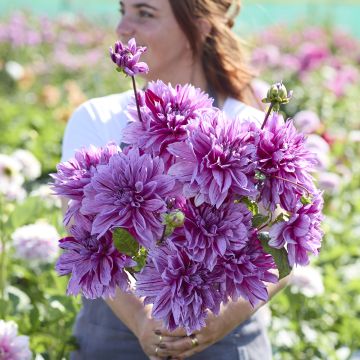
Available in 1 sizes
Available in 1 sizes
Available in 1 sizes
Available in 1 sizes
Available in 1 sizes
Available in 1 sizes
Available in 1 sizes
Available in 1 sizes
Best flowering bushes
Some flowering bushes provide essential inflorescences for your floral arrangements. Which are most appreciated?
Hydrangea
The hydrangea offers a impressive flowering, usually in large spherical inflorescences, typically blue or pink, but hydrangeas also occur in white or mauve.
It makes romantic, lush fresh bouquets, but you can also dry its flowers for dried bouquets: consult our advice sheet on how to dry hydrangea flowers.
- Bush deciduous – Flowering from June to October – To grow in sun or partial shade in any acidic, well-drained, rich, deep soil
Lilac
The lilac is one of the most beautiful flowering bushes in spring: it flowers abundantly in lavish clusters of white, pink, mauve or purple flowers that give off a very floral, unmistakable scent. It always makes delightfully old-fashioned bouquets tinged with nostalgia. The scented clusters make fresh but short-lived spring bouquets; in a vase they tend to wilt very quickly, within two to three days.
- Bush deciduous – Flowering from April to June – To grow in sun or partial shade in any well-drained soil
Rosebush
Rose is emblematic flower of charming bouquets and romance! The rosebush enchants with delicacy of its flowers, single or double, which often give off a pleasant fragrance. Choose perpetual varieties that can flower several times a year. Roses come in gentle or bold colours, ranging from porcelain pink to crimson red and including all shades of yellow and orange. To include a rosebush in a cut-flower border, we recommend bush roses that are not very tall and that provide abundant flowering. Cut stems when buds are about to open.
Don't forget foliage!
Flower bouquets are enhanced by touches of greenery that add volume and a contrast of texture between flowers or, conversely, lighten the floral composition. Think of the grey‑green foliage of eucalyptus, the finely cut foliage of ferns, the superb, often silvery and beautifully dissected foliage of Artemisia, the feathery and very graphic inflorescences of grasses, the branches of symphorines or the colourful leaves of Coleus.
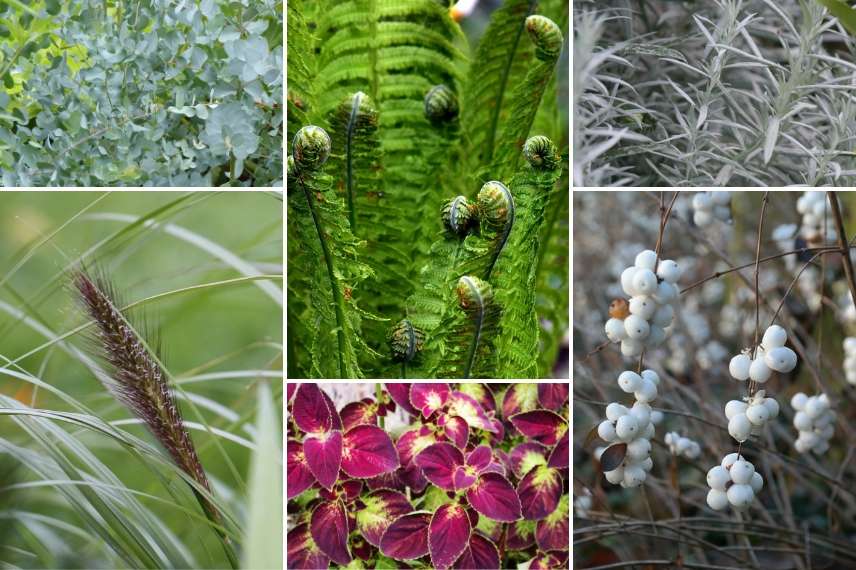
Eucalyptus, grasses (Pennisetum, Calamagrostis…), ferns, Coleus, Artemisia et symphorine
Harvesting the right way
To help your cut flower bouquets last longer in a vase, make the right cut for better vase life:
- Pick flowers in the cool of the early morning.
- Select flowers when still in bud, just beginning to open.
- Cut stems cleanly with well-sharpened pruning shears.
- Place them promptly in a vase of cold water.
Some practical tips
- Remember your flowers will need regular watering: plan easy access to your plantings
- Add compost every spring to support flowering
- Mulch with dead leaves or flax chippings to prevent weeds establishing between your flowers
- Subscribe!
- Contents
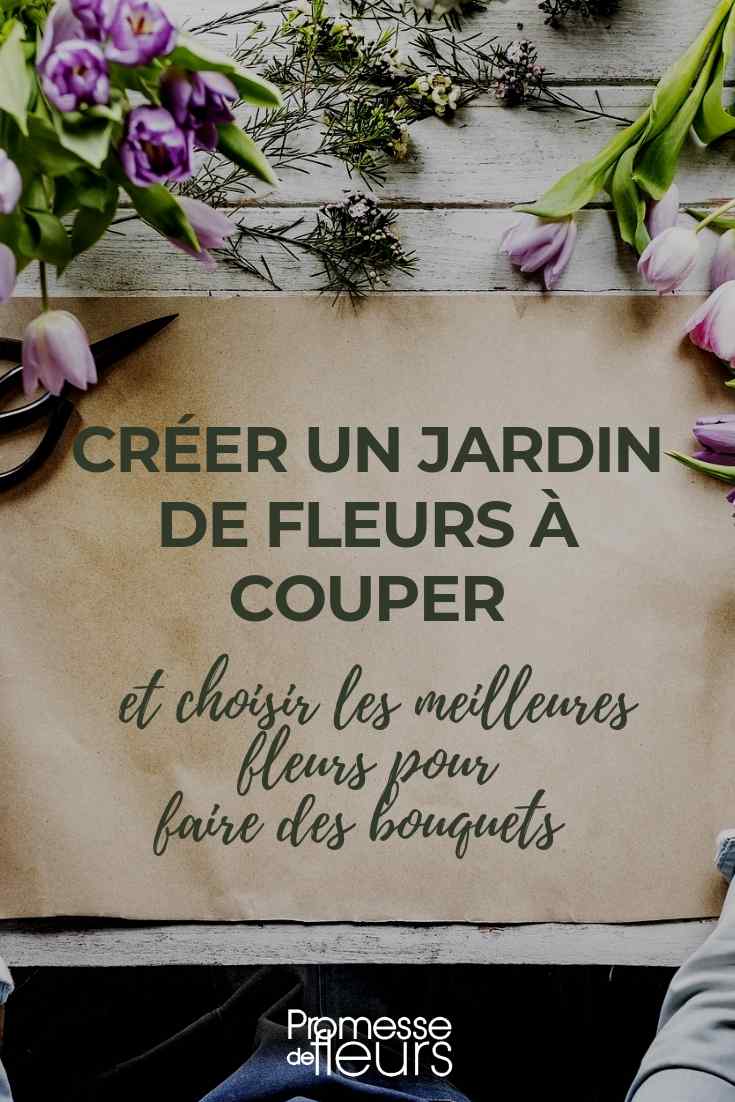































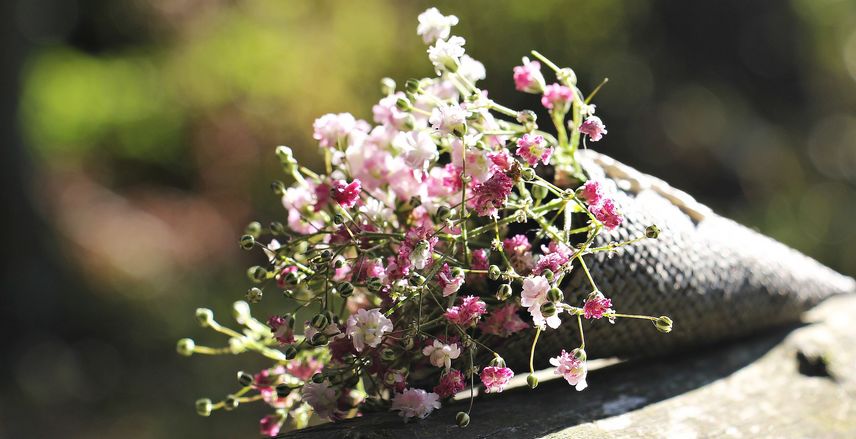
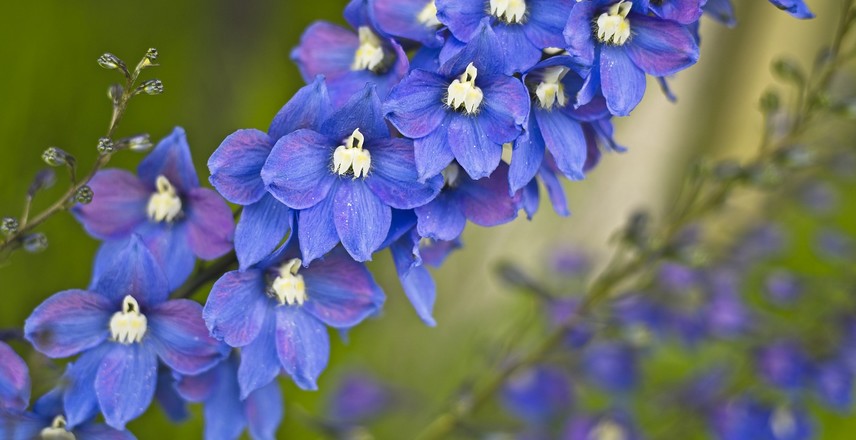
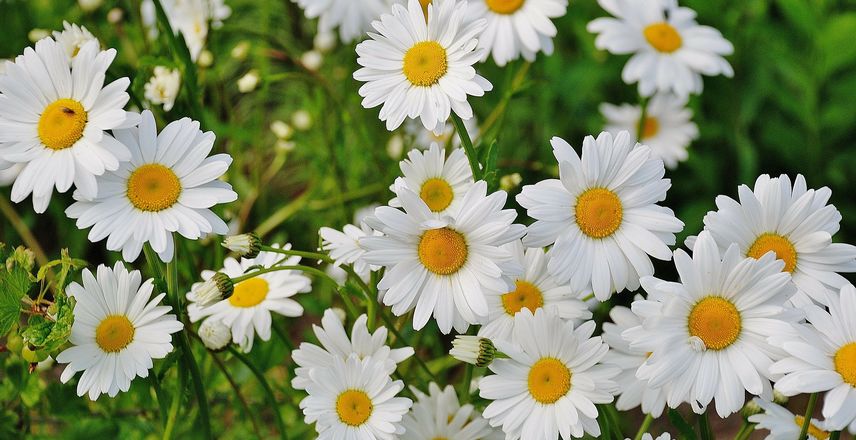
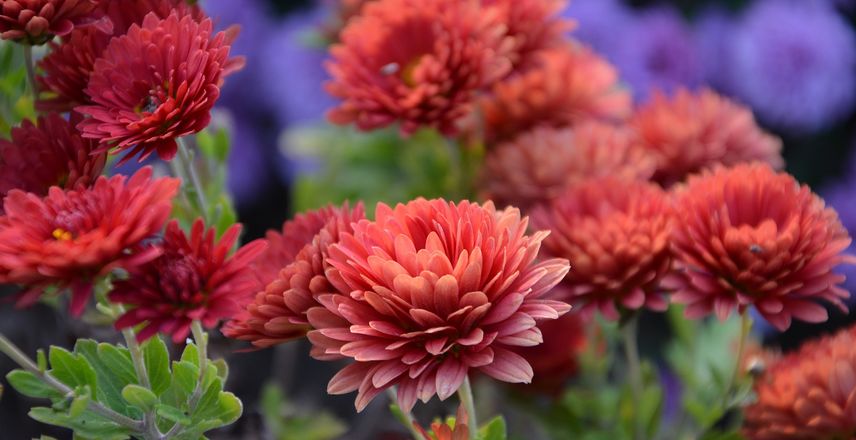

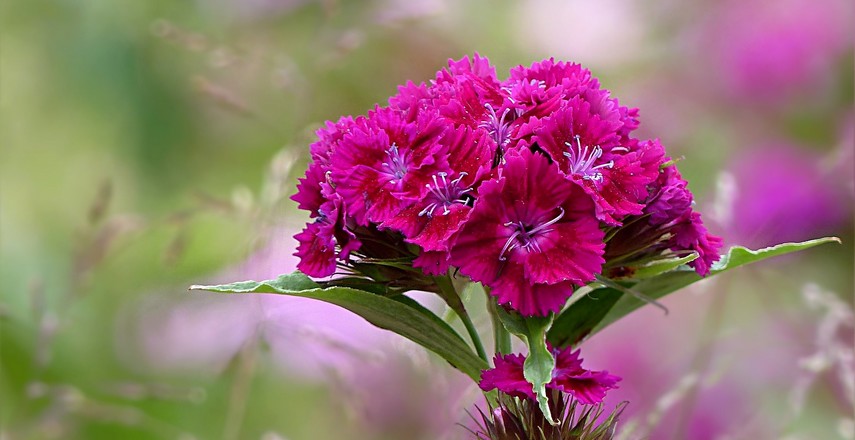
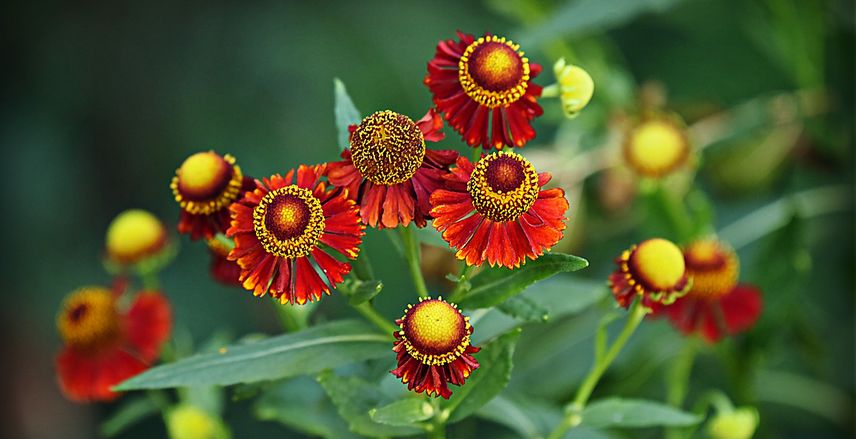

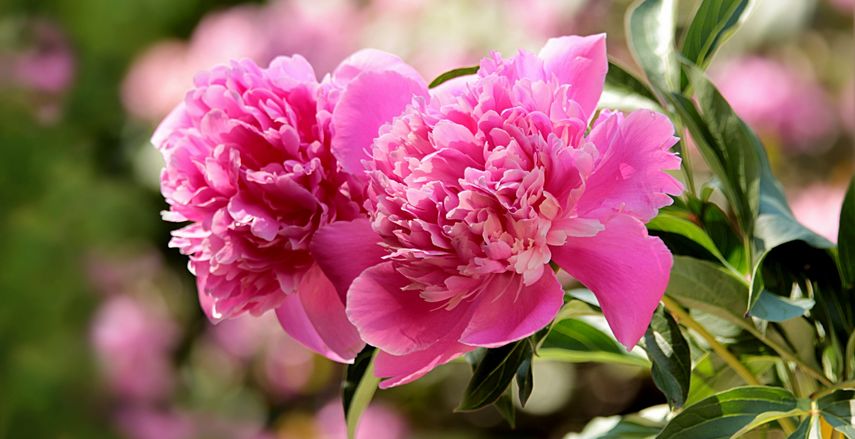
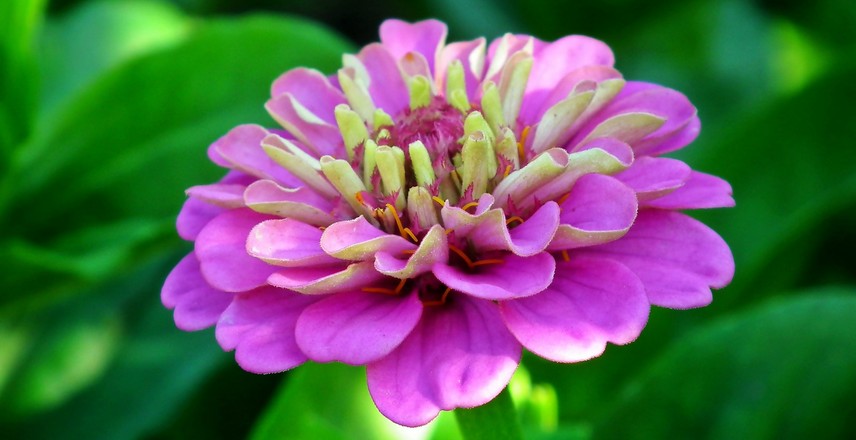

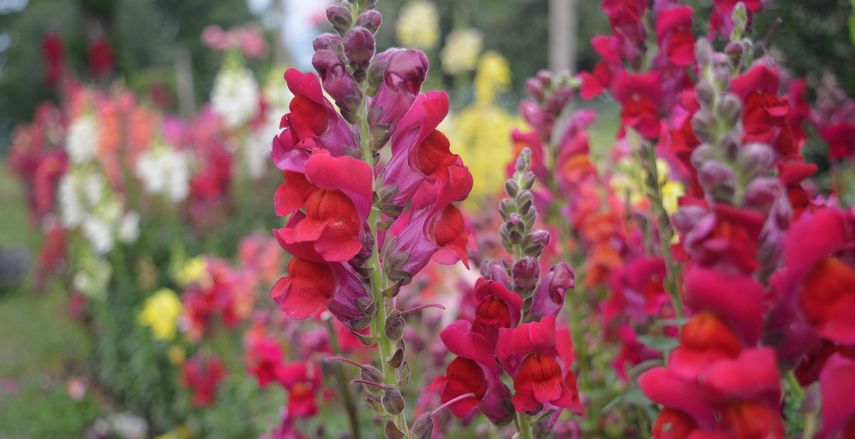
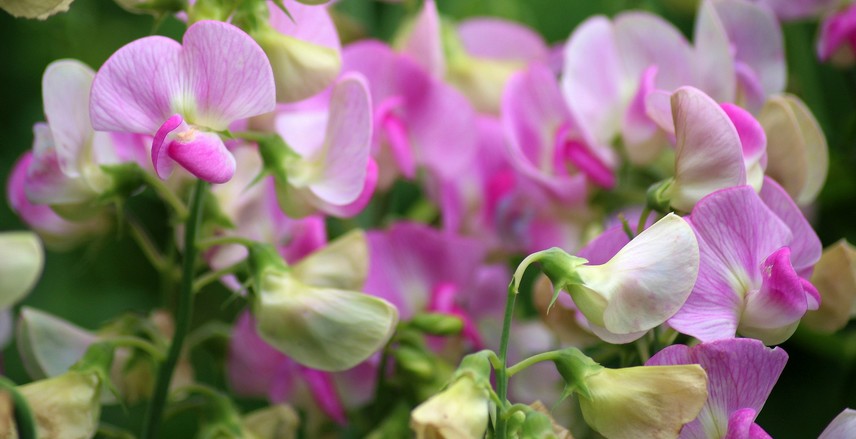
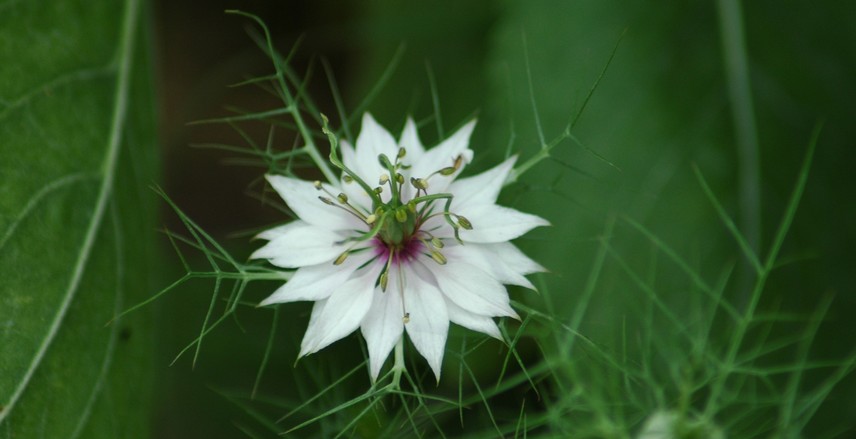
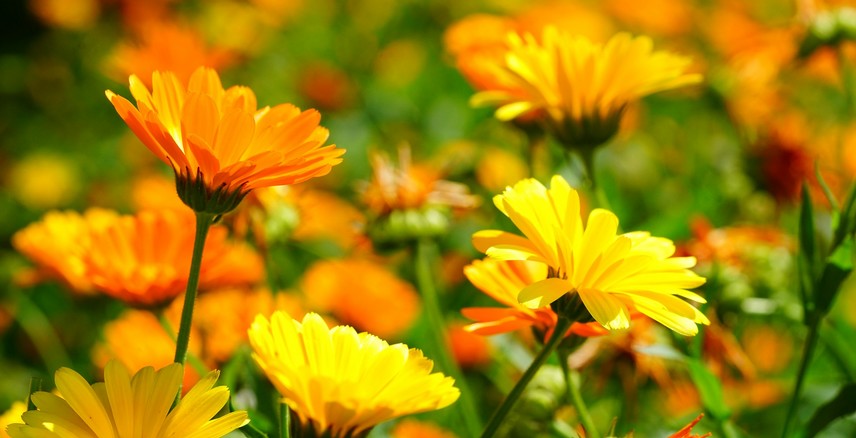
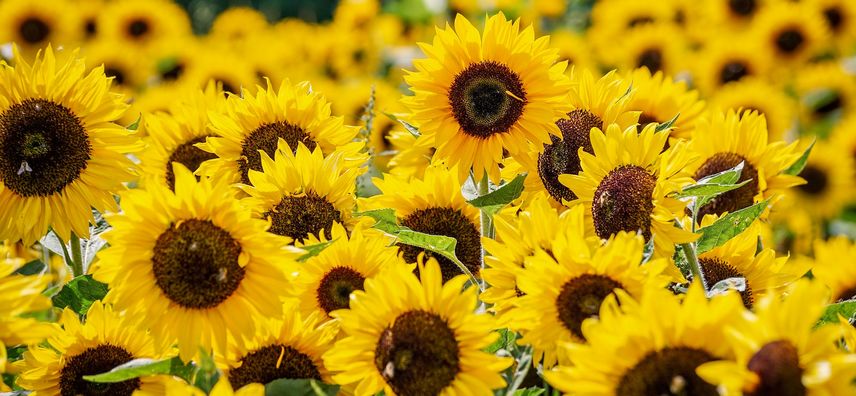
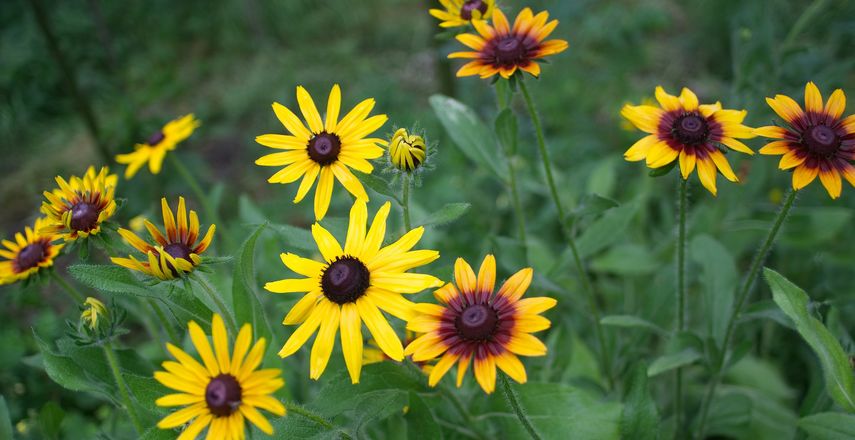
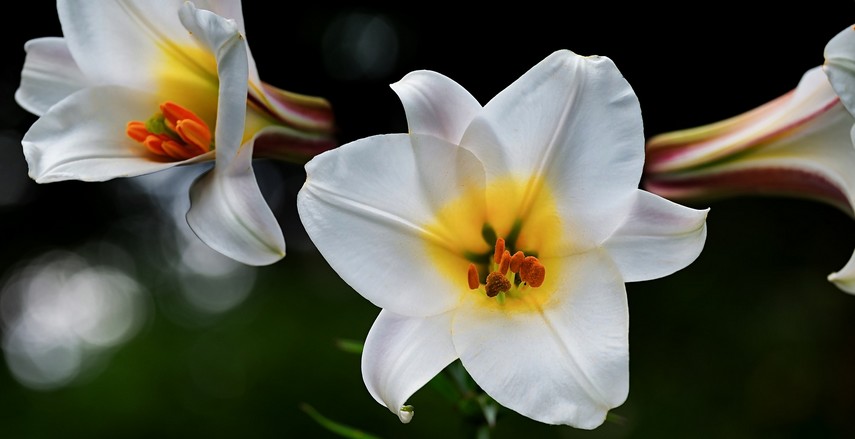

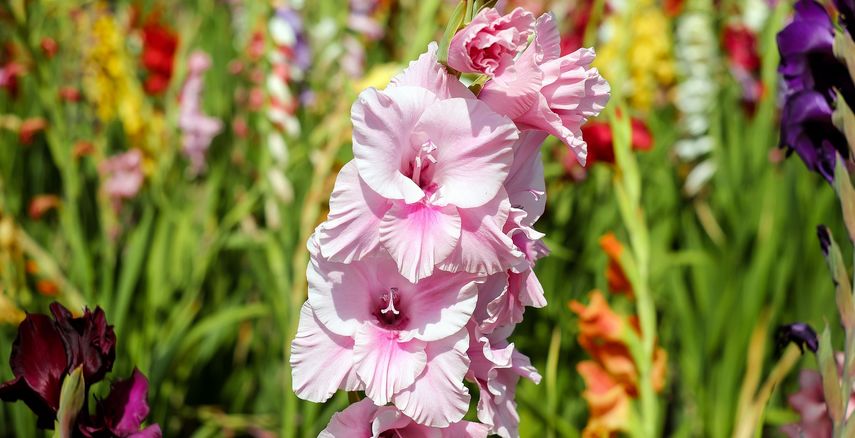
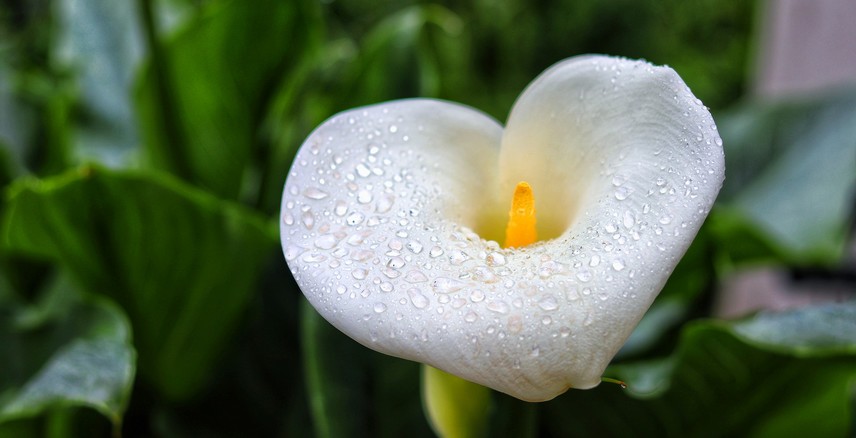
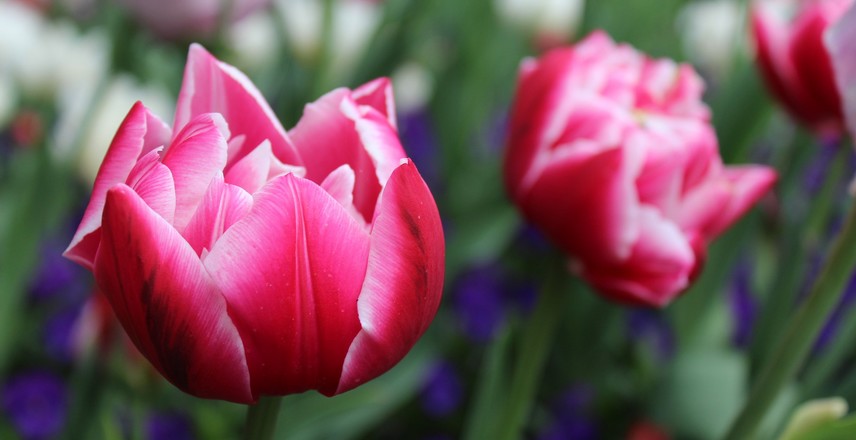
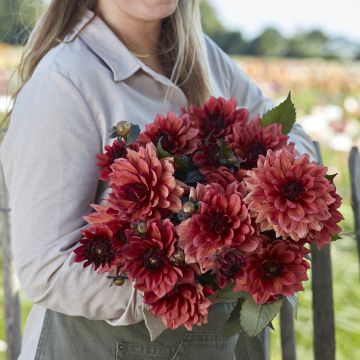
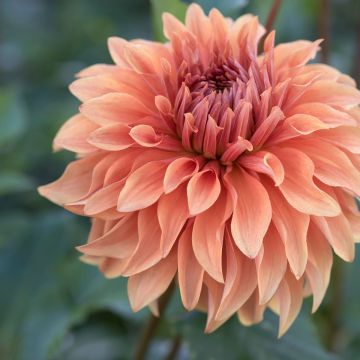
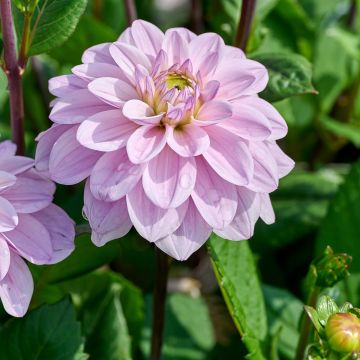
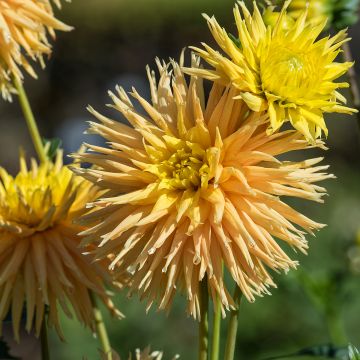
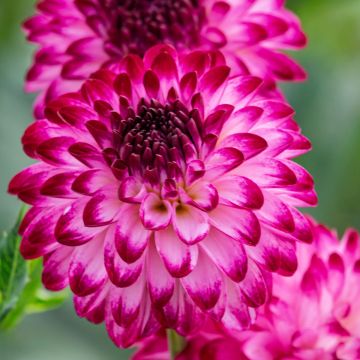
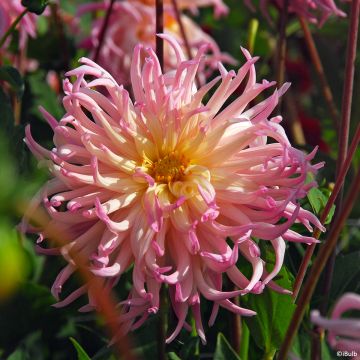
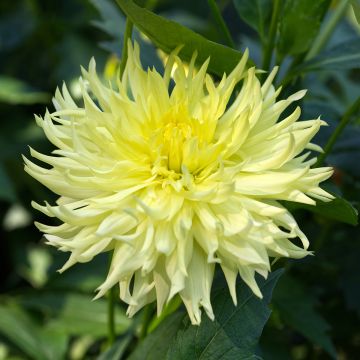
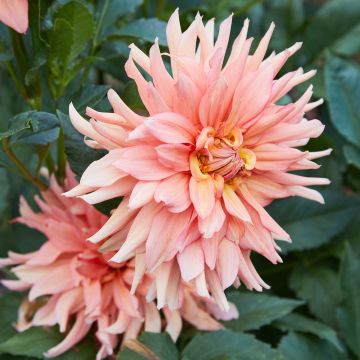
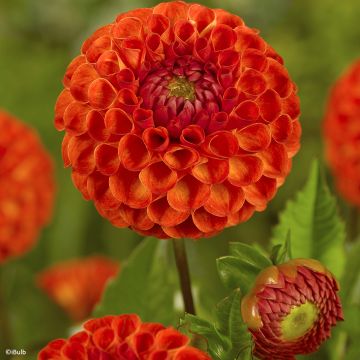
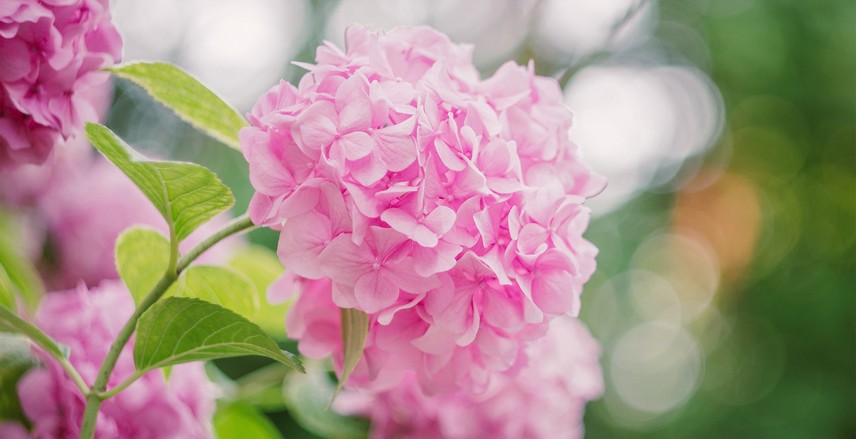
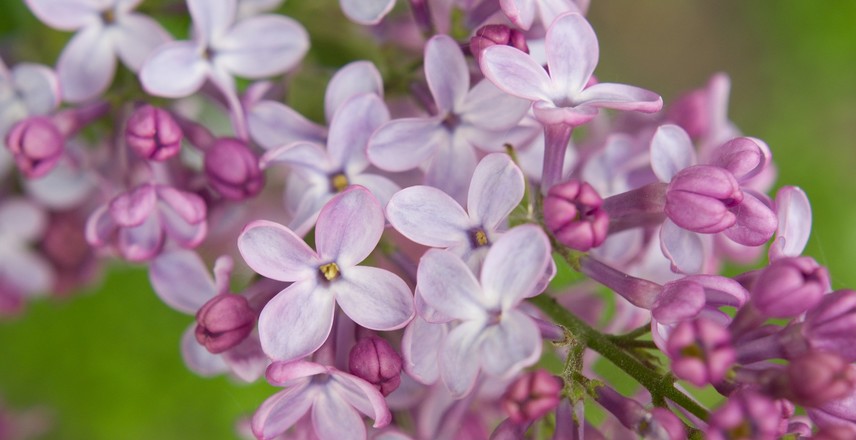
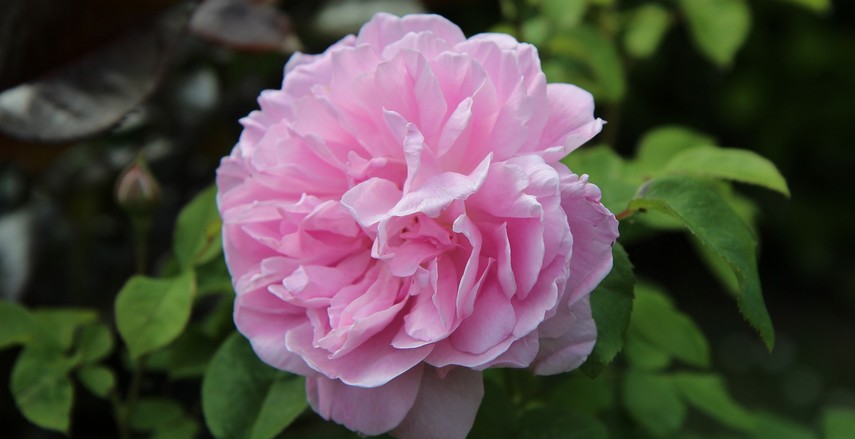
Comments